The Families of the "Bakersfield 3" React to New Docuseries
It's been seven years since three moms banded together to find out what happened to their murdered and missing children.
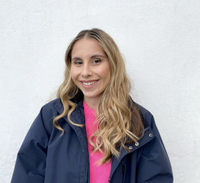
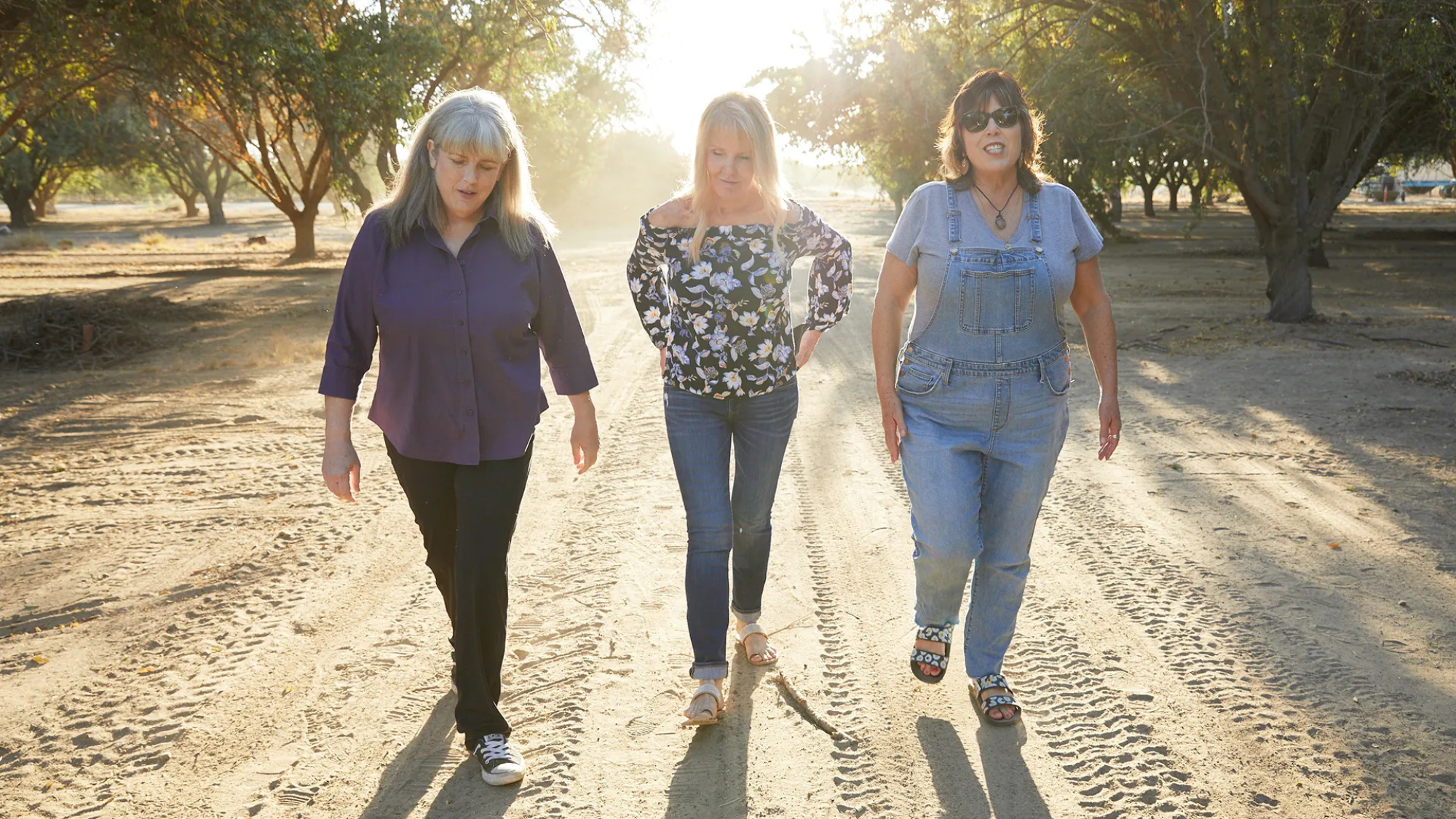
Select the newsletters you’d like to receive. Then, add your email to sign up.
You are now subscribed
Your newsletter sign-up was successful
Want to add more newsletters?

Delivered daily
Marie Claire Daily
Get exclusive access to fashion and beauty trends, hot-off-the-press celebrity news, and more.

Sent weekly on Saturday
Marie Claire Self Checkout
Exclusive access to expert shopping and styling advice from Nikki Ogunnaike, Marie Claire's editor-in-chief.

Once a week
Maire Claire Face Forward
Insider tips and recommendations for skin, hair, makeup, nails and more from Hannah Baxter, Marie Claire's beauty director.

Once a week
Livingetc
Your shortcut to the now and the next in contemporary home decoration, from designing a fashion-forward kitchen to decoding color schemes, and the latest interiors trends.

Delivered Daily
Homes & Gardens
The ultimate interior design resource from the world's leading experts - discover inspiring decorating ideas, color scheming know-how, garden inspiration and shopping expertise.
In 2022, Marie Claire writer Katya Cengel profiled the mothers of the "Bakersfield 3": a trio of young people who disappeared or were murdered in the space of weeks in the spring of 2018.
Diane “Di” Byrne’s son James Kulstad, 38, was shot to death; Cheryl Holsonbake’s son Micah Holsonbake, 34, went missing and was later confirmed to have been murdered; and Jane Parrent’s daughter Baylee Parrent Despot has been missing since April 2018. She was 20 at the time of her disappearance.
Since these tragic, incomprehensible events, the three mothers have banded together to not only elucidate what happened to their children, but also to make an enormous difference in the way their county, Kern County, deals with murders and missing persons cases.
Sadly, Di passed away last year after battling ovarian cancer, but not before she was able to speak her truth in a docuseries inspired by Marie Claire‘s original article. That series, titled The Bakersfield 3: A Tale of Murder and Motherhood, airs on Investigation Discovery and Max on Sunday, May 11, from 8 p.m. ET.
Even in the face of yet more loss, Jane and Cheryl, and Di’s granddaughter Camryn Albert—James’ daughter—continue to “fight like a mother” for their family members to receive justice. Marie Claire spoke to the three women on a Zoom call ahead of the documentary’s release.
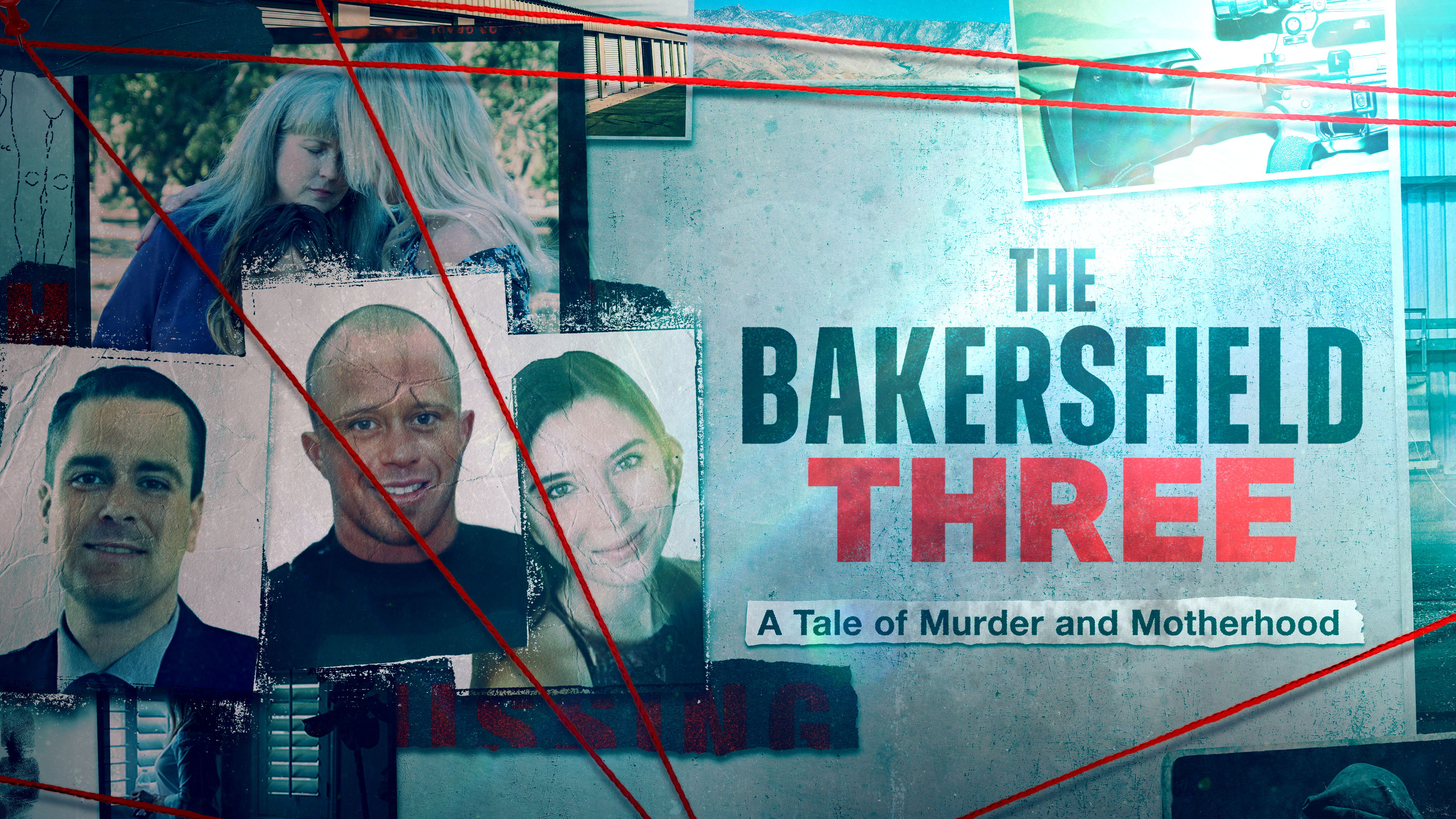
Marie Claire: You’ve all been through so much the past seven years. How are you all feeling right now?
Jane Parrent: After seven years, it's very tiring, fighting this fight. It takes a lot mentally and physically, and it affects your health. It ages you really fast, but I'm still hanging in there riding the wave until it finally crashes and it's over.
Get exclusive access to fashion and beauty trends, hot-off-the-press celebrity news, and more.
Cheryl Holsonbake: This is a really tough month to ask that question. May is a very tough month for me every year, March and May. May is Mother's Day, May is Micah's birthday, May is my anniversary, May is my parents' anniversary and my dad recently passed, and it's just—it's a tough month, so I try and stay distracted.
Camryn Albert: I'm doing good. I feel like I'm just in this time of healing, which I know sounds maybe a little bit odd because it's been seven years, but there's been so much that's happened, especially with the loss of my Grammy in April of last year. I've just been focused on school. I'm getting my bachelor's degree in English and just healing, really. I have a little three-year-old running around, so that does a good job [of distracting me]. And he brings me so much joy and happiness.
MC: Have you all already seen the docuseries? What did you think?
JP: I’ve seen it. I've watched it twice. It left me wanting to know more, even though I know more of the story. I just really like it and I hope it helps other families know that when you come together with other moms, you're stronger, and don't be afraid to fight, to fight like a mother. [Points to her heart-shaped necklace.]
CH: I thought it was exceptionally well done. I was very pleased. It was very emotional to film. But I also remember having some really happy times during the filming, just being together. Of course Di was with us then and so it was watching it and remembering those conversations we had with her in the middle of it all—her being sick and everything. It was emotional, but I also just missed her and just wish she was here now.
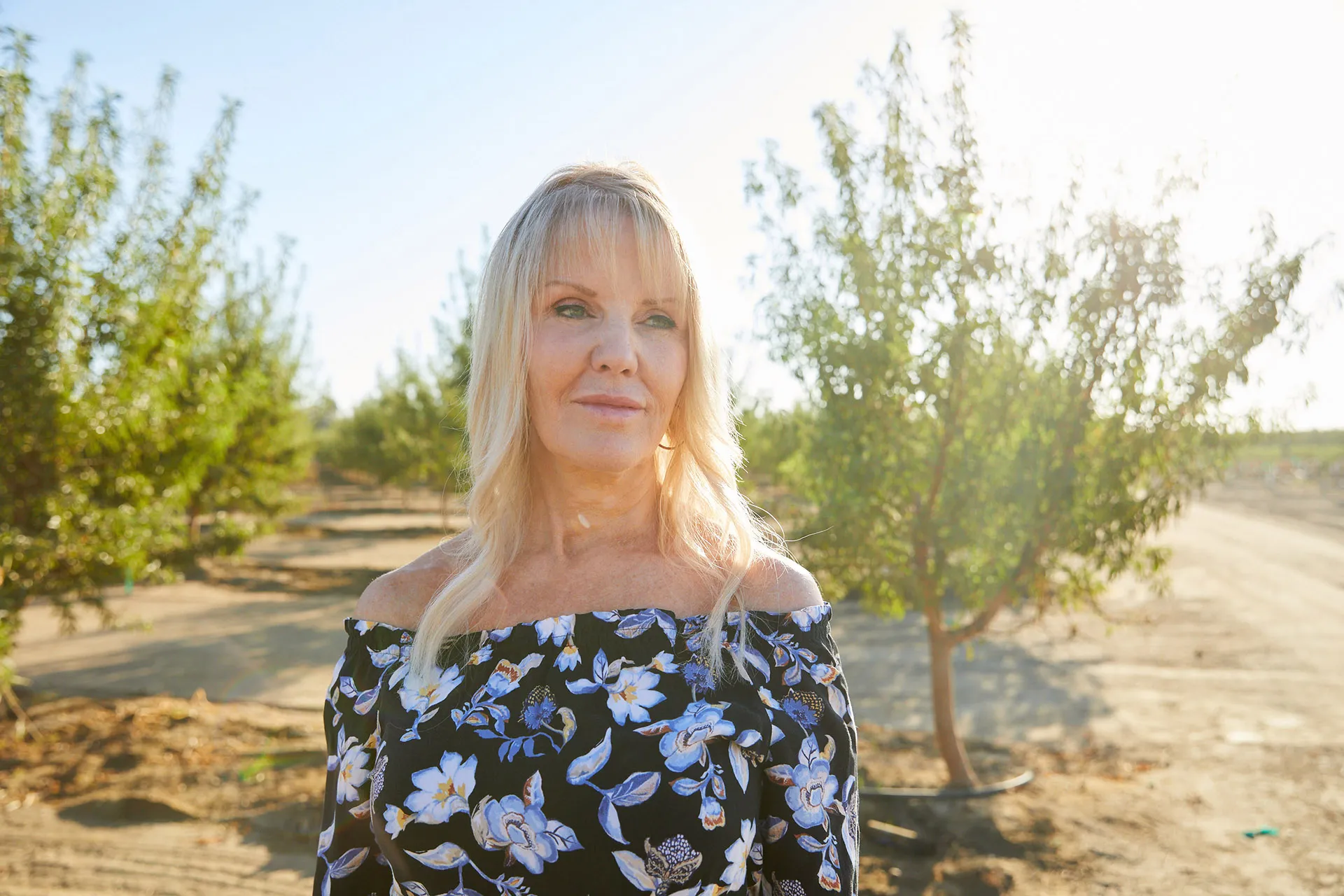
Di Byrne in a Bakersfield almond orchard that figures in the cases.
MC: How do you think Di would feel about the documentary?
CH: I think she would be exceptionally pleased. I think she would be very happy and glad that it's in the world. And of course, I think she would hope that there would be some tips that came from it, some people who finally got the courage together to call some information in to our detective.
MC: How would you define Di's legacy, what she left the world with?
JP: Oh jeez.
CH: I can tell you what she left me with!
CA: Same!
CH: To never give up. Never give up, never forget what we worked really hard to do. Never forget that projects like Secret Witness and having appropriate sonar equipment to search for people —those things were vital to her.
CA: This situation is so unique among all of us, and what's happened in our lives is not very common, thankfully. But if you can't relate on the same level as us, she left behind—I mean, and even just for me in my life with my son, like we stick up for our children, we fight like a mother.
MC: At one point in the documentary, Jane, you say the cases are literally killing you, referring to Di’s cancer. Do you still feel that way after she passed?
JP: Well, yeah. Stress is a silent killer. Back in December of 2020, I had a heart attack. So, you know, it is killing us. It's the stress, mentally. They didn't know why I had a heart attack. I had all the tests done and stuff. I told the doctor I had broken heart syndrome. Which, you know, you hear about people dying suddenly from a broken heart. Luckily, I didn't.
CH: It's a real thing.
JP: It's a real thing, and the stress, the reliving it every day feels like the first day. But I've learned to kind of keep that back. The distracting your mind constantly takes a toll...I have to relearn how to live life dealing with this and without finding my daughter. And it just kills you a little bit every day. You have to learn to do self-care, which is hard. Because you think, "Why should I go out and try to have some fun? I should be fighting for justice." But yes, it does kill you.
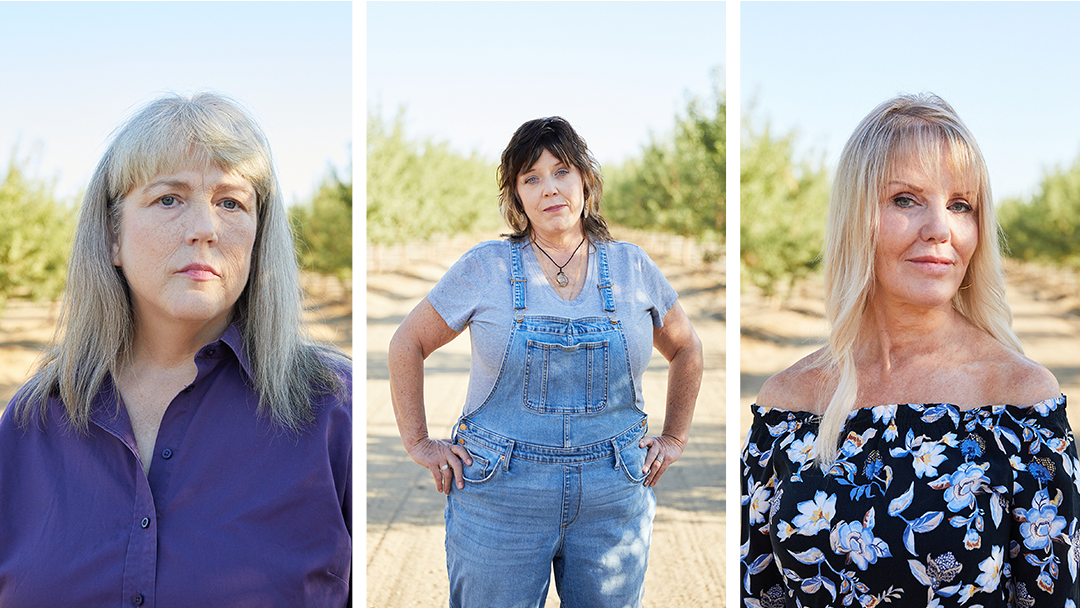
Cheryl, Jane, and Di visit the almond orchard together; it might be one of the last places seen by Baylee and Micah.
MC: You’ve done amazing work through your nonprofit, Bakersfield 3. What are you proudest of in that work?
CH: I think the thing I'm proudest of is we taught people that you can show up and you can talk to your local representatives, and you can ask questions about the information you're seeing on the news or the data that you're seeing in a a press release about crime levels, and that you can band together with other people and you can make a difference.
And I am also very proud of that sonar equipment [that the women raised money to buy for the county]. I live up in a very rural area in the same county where Bakersfield is, and I was at the gas station one day and a lady recognized me from being on the news and whatnot, and she said, ‘We used your sonar in the lake to help find a family member who had drowned.’ And I was so happy that there was a family who was receiving services from something that we worked hard to accomplish.
JP: Let's not forget we were the catalyst for getting the ANDE rapid DNA here.
CH: That’s very important.
JP: Thanks to ANDE, we worked out a good deal and the crime lab is using it. I spoke to a lady at the coroner's office. I asked about the rapid DNA...I asked, ‘How is it utilized?’ and I'm so happy to hear that they picked the unit up because it's what the military uses and they take it out to disaster areas. It was taken down to the fires in Southern California to help identify victims. That's one thing I know Di would be very happy about. People getting to go home. Loved ones knowing, "I know where they're at." Because she would always say, ‘I know where James is,’ and [Cheryl would] say, "I know where… you know, you have peace…" That didn't come out right, Cheryl. I'm sorry.
CH: Don’t worry. It's the truth.
JP: Di would always say, "I know where James is, but you don't know where Baylee’s at." And for moms of missing persons, that's the worst thing—not to know.
CH: It is.
JP: So Di would be very proud of ANDE DNA. She was proud of the sonar equipment. Once things get settled, I'm ready to go back and make people aware of what's broken.
CH: For the longest time, Micah's remains were in a refrigerated boxcar. They didn't have enough space where they were in order to have deceased individuals come through to the level that our county needs...It was very disconcerting to know that. It was a bit of a secret at the time—but we found out about it and we didn't shut up about it. And eventually the money was allocated and they have a brand-new coroner's office now that is large enough to accommodate the needs of our county. It's okay if you find out something's broken, to go on about it to your public officials. It's the only way sometimes things get done.
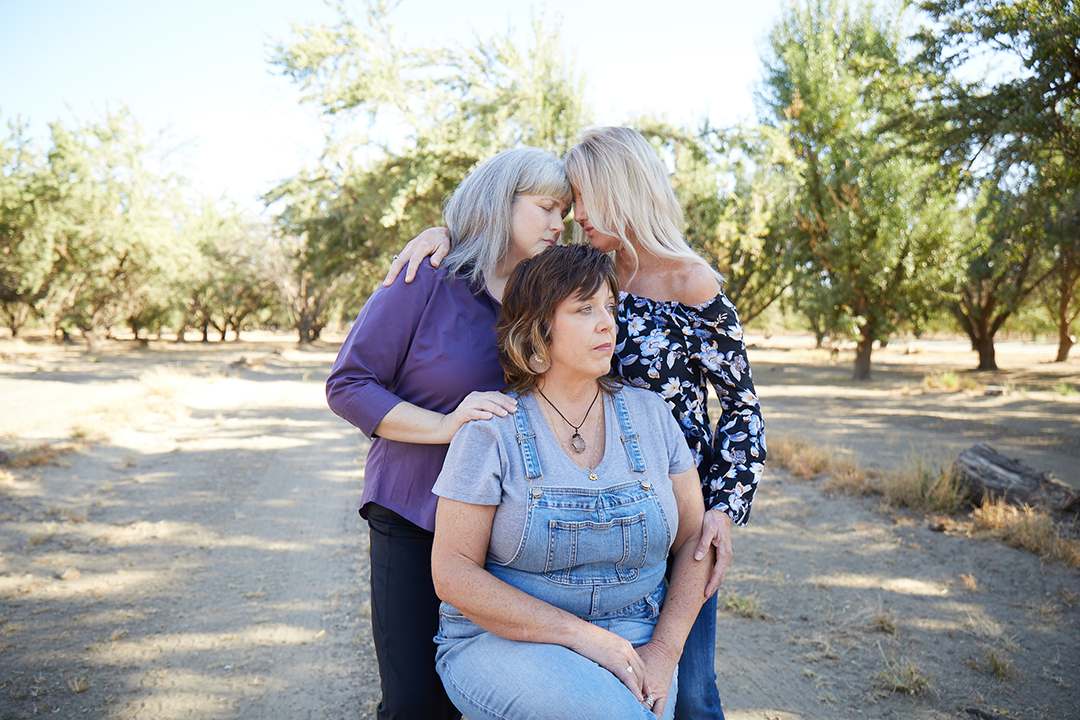
The Bakersfield 3 moms.
MC: How has Di’s passing affected the way you lean on one another for support?
CA: I think that it's still, honestly, very shocking. I'm not in the documentary because, during filming, my mom who raised me—so not my Grammy Diane but my mom—she was diagnosed with ALS and had two to five years to live. During the filming, she was just getting really bad and I couldn't shift my attention from her to the documentary. And then six months after my mom had passed away, my Grammy Di passed away. And it was a lot.
JP: But Cammy, you also in the community helped raise money for the ALS because your mom had a rare form of it, correct? So you help the community too, yourself.
CA: Yeah, sorry, let me pull myself together. Yeah, it's just a lot of loss. Within the last seven years, it's been the most important people in my life.
CH: It's a really difficult thing to lose one family member traumatically. And then another and then another and another, and that is something that very few people survive.
CA: Yeah, but I'm just at this point where all I want is to be happy and to be healthy, and I wake up every single day and choose that. And sometimes there's a lot of guilt with that and some days are harder than others, but I know that my dad, my mom, and my Grammy would—they did too much, whether it's for the community or in my own life—for me to sit around and be sad. As far as with Jane and Cheryl, I'm so happy that they’re in my life.
JP: We helped each other. Because it doesn't matter how old your kid is, they're still your baby. I always refer to Baylee—I want my baby back. I wanna hold her one last time. But Cammy, you're doing wonderful, and I know Di and your mom and your dad are so proud of you.
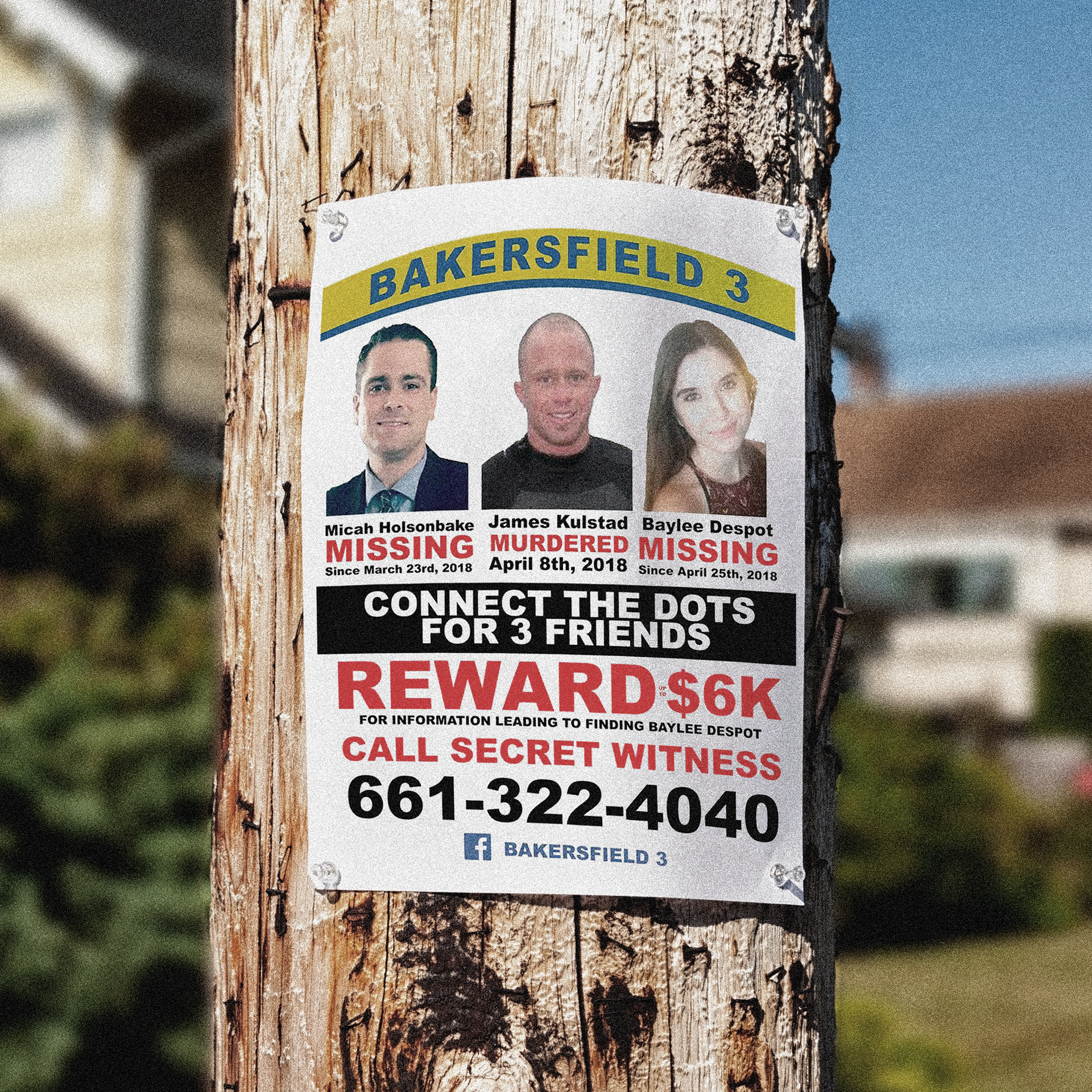
One of the flyers the moms posted around Bakersfield highlighting the cases together.
MC: What’s something you want the world to know about James, Micah and Baylee?
JP: The last year or two of their lives, it's just not who they were. It wasn't them. They just, like so many young girls and boys and men—you get involved with the wrong people, you get taken advantage of and get put in situations that you can't get out of.
CH: That's exactly it. How Micah died is not the sum total of Micah's life. He was 34 years old, he had a career and a family and people who loved him, friends who had loved him since junior high school, lifelong friends, real friends. And then one day life began falling apart and I think if it could happen in our family, that it could happen to most any family.
I want the world to know that this is happening. This is happening in your neighborhood, whether you realize it or not, there are evil people out there who will seek to do you harm and your children harm if you're not on guard for it. And sometimes poor decisions play a role in that, and sometimes addiction plays a role in that, and sometimes mental health issues play a role in that.
But what you can't do is turn your eyes away, avert your gaze, and say that will never happen to me, because it can and often does happen in the best of families with the best intentions.
If you find someone in your life who is struggling with these things, be the person to reach out and say, "I imagine this is a tough day. I imagine Mother's Day is a very tough day for you, and I'm thinking about you today."
You're not gonna remind them that their loved one is dead or that they're missing. They already know it. They were already thinking about it before you sent them a message or made a phone call. I hope that people can take Micah's story and our story, of all of us together, and turn it into an act of kindness for another family who's in a similar situation. And I think the underlying message of the whole documentary is we have to be kind to each other.
I hope [the docuseries] helps other families know that when you come together with other moms, you're stronger—and don't be afraid to fight, to fight like a mother.
JP: I want the world to know—don't be afraid to say their name because it makes people uncomfortable. I used to apologize when I would call somebody Baylee, but I don't anymore. I just say, "Oh, she's with me." Tell stories about them. Because we like to hear stories, whether they're good stories or bad stories, funny stories. Because that's stuff we don't know, we haven't heard that story, so it touches our heart. We have a new happy memory to put in there to grab when you kind of go to that dark place.
CH: I still get pictures. People send me pictures. "Did you ever see this picture?" "No, I didn't, thank you for sending it."
JP: In the documentary, I’d never seen that video of Baylee dancing with the champagne, but that's who she was. She wasn’t this… Anyway, I don't need to go on, but just, don't be afraid to mention the name at family gatherings, because a lot of times family members won't talk about it because they don't want to trigger you or something. But I need those memories.
CA: All we have is memories. With my dad, I feel like I don't have very many—even though I had almost 18 years with him. But then every so often there will be somebody that comes along with something new or a new photo or a new story, or I'll think of one that I haven't thought of, and it really does bring so much comfort.
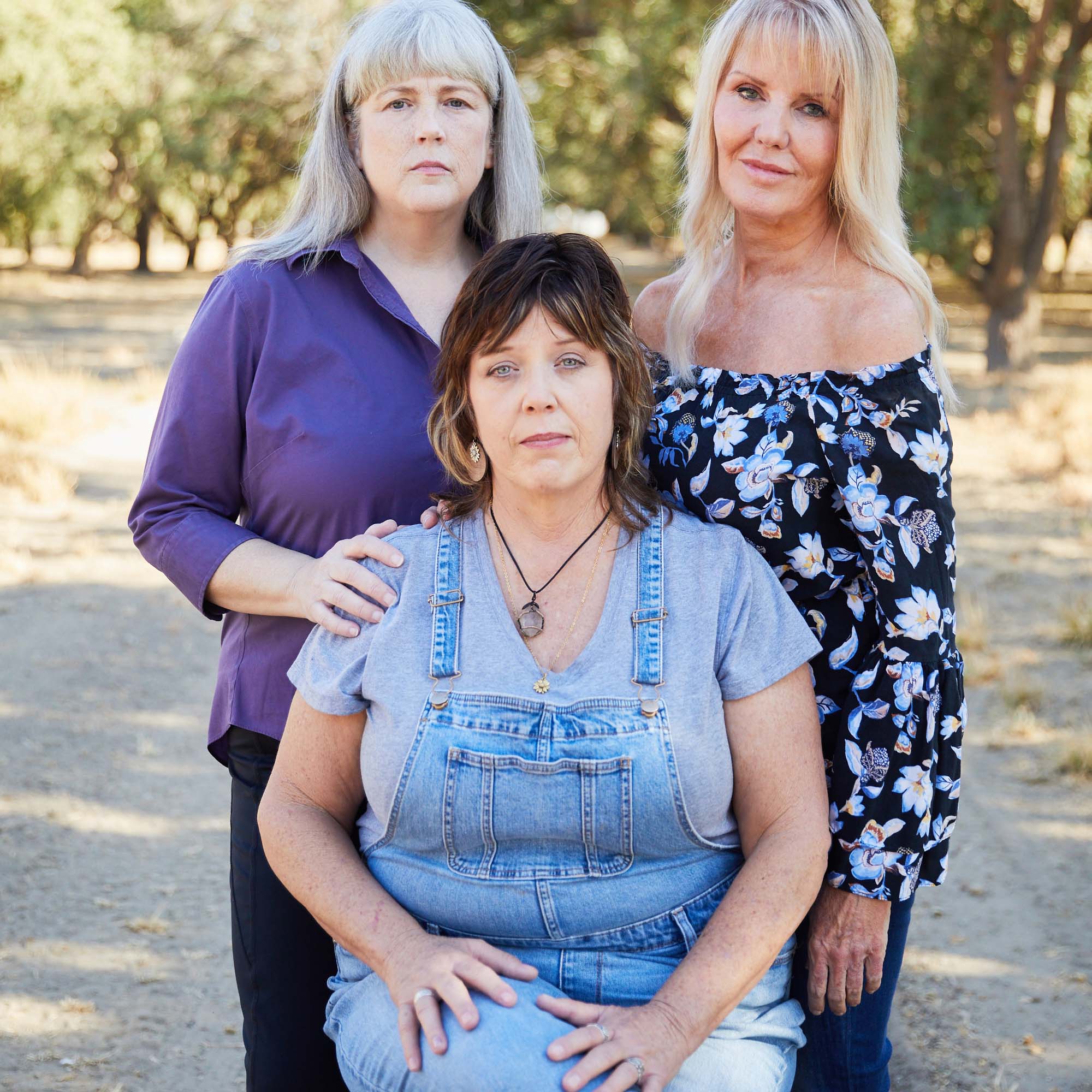
The moms of the Bakersfield 3.
MC: What are your hopes for the future of your cases, especially for James and Baylee’s cases, since there’s still so many questions about them?
JP: That people not be afraid. You can't be afraid to tell what you know. Because these people you're protecting, they're not gonna protect you. They'll turn on you in an instant.
CA: Time doesn't make things easier per se. It's almost like it does get a little bit more bearable almost, but even then there's the days—the more time that goes on, it gets almost harder in a sense. It's interesting seven years later watching where the players in this situation have ended up, and it shows that there's always a greater good. There's been a lot of goodness that we have experienced.
CH: Back in the day, Di, Jane and I interviewed a lot of people. They would call us in the middle of the night. And they would tell us their stories, and then they would beg us not to tell the police their name, because they had been threatened. Or their kids had been threatened, or their families. And the people who were doing that threatening in many cases are gone now. Some of them are in prison. Some of them are dead. And it's safer now than ever before for you to make a call to Secret Witness, and you can do it anonymously if you choose to. You do not have to give your name and contact information. You can share what you know, and maybe it'll be the piece that leads our detective to a case that he can take into a courtroom. That's what we need. We need the pieces that can be taken into a courtroom to convince a jury. You know, we know who the players are.
JP: Some of them are out there who were involved, living life, having babies, raising their own kids. Maybe they'll get a conscience and think, "Oh my God," but they don't think it's gonna happen to them because they're the bad people. So it's just a waiting game. Whoever needs to save themself will tell something. Can't turn Baylee’s case into a homicide until we find her, a piece of her.
MC: That's all my questions, but do you guys feel like there's anything you've left out?
CH: Secret Witness for Kern County—the phone number is 661-322-4040, and you can call from anywhere in the world and give the information that you have and you do not have to leave your name and information. You can just give enough, give what you know, and maybe it's something you didn't think was important that might corroborate another person's phone call.
JP: Yeah, "I remember I was somewhere and this happened," but you didn't think it was pertinent.
CH: That's what we need. We need people to call, tell what they know.
This interview has been edited for clarity.
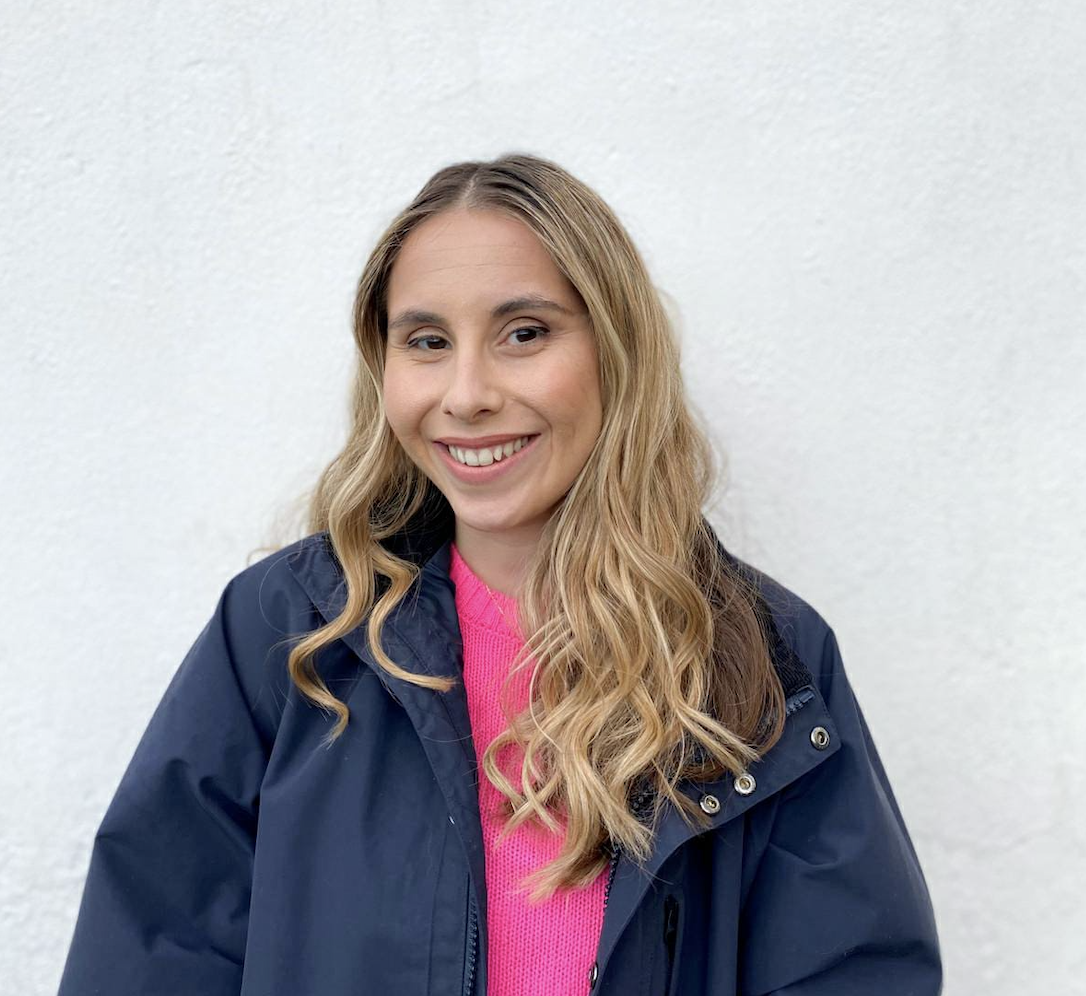
Iris Goldsztajn is a London-based journalist, editor and author. She is the morning editor at Marie Claire, and her work has appeared in the likes of British Vogue, InStyle, Cosmopolitan, Refinery29 and SELF. Iris writes about everything from celebrity news and relationship advice to the pitfalls of diet culture and the joys of exercise. She has many opinions on Harry Styles, and can typically be found eating her body weight in cheap chocolate.
